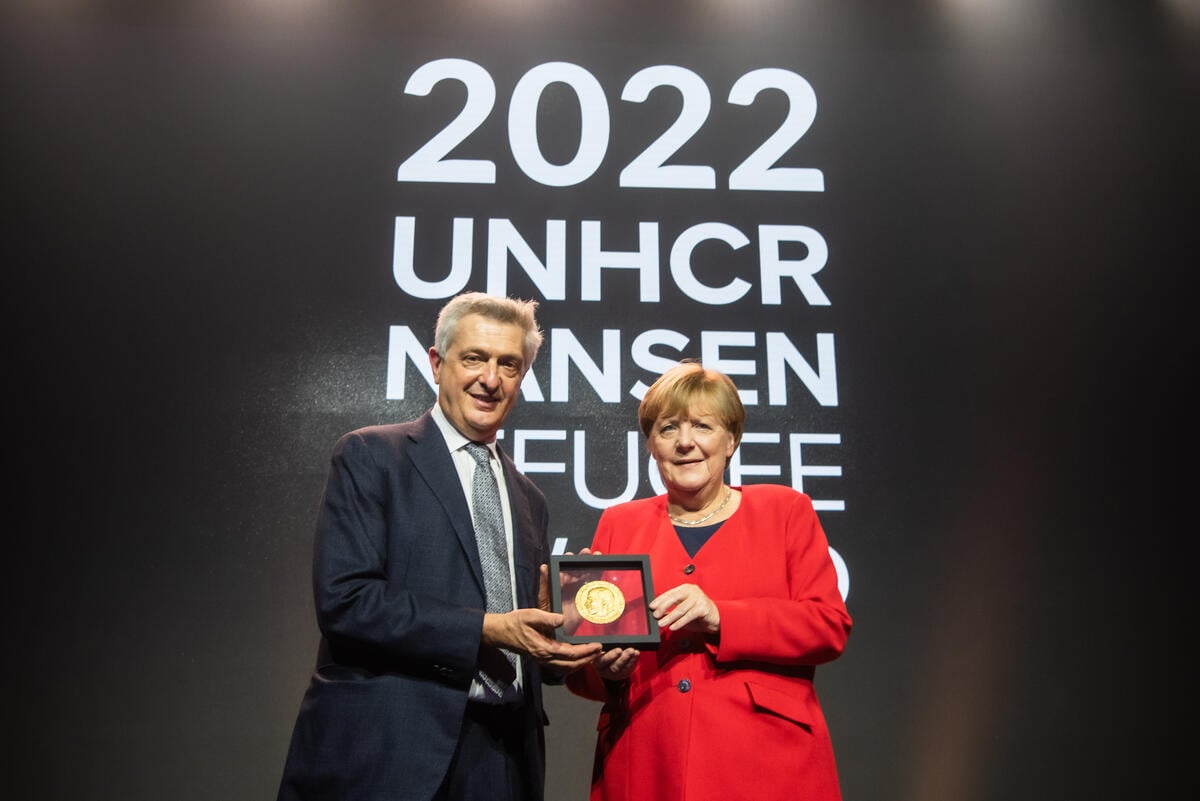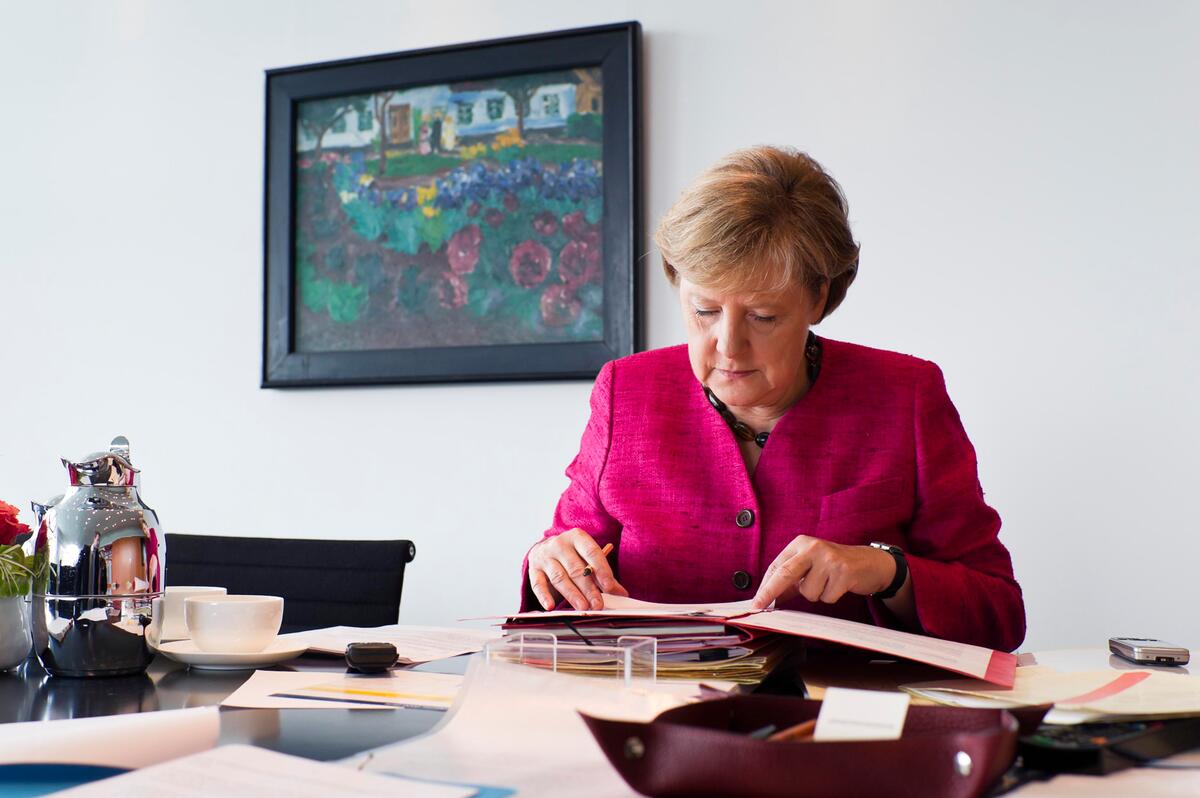Syrians desperate for a new life drown trying to reach Greece
Syrians desperate for a new life drown trying to reach Greece

LESVOS, Greece, April 4 (UNHCR) - The midnight water was as still as a pond of mercury when the Syrian refugees pushed the craft into the eastern Aegean. An old smuggler lured the weary people into the motorboat with a single word. "Greece," said the man as they stood on a rocky Turkish cove. He pointed to the lights of the island of Lesvos, tantalizingly close, and repeated: "Greece."
Among the passengers, some had lost friends and relatives inside Syria, including one passenger with relatives killed during last year's chemical attacks just outside Damascus. They had survived the worst of the conflict and were now at Europe's doorstep.
But on the night of March 18, seven of them perished at sea, a mile off the Greek shore, when their boat was swamped by waves. The vessel, built to carry a maximum of seven people, was crowded with 16, including two women and two children.
Survivors said the boat driver seemed too young and was cutting through the sea far too fast for the conditions. In a matter of minutes the still waters near the shoreline had given way to waves that had the craft bouncing hard against the sea. Soon the driver had lost his way.
The lights of Lesvos were no longer in front of them, but to their left. The vessel was moving northward. The men in the stern noticed water coming into the craft. The pilot turned off the motor. Waves washed into the boat - first from the left, then from the right. The men on deck were thrown off.
Mohammed Al Housain, 25, a doctor from Aleppo, remembered seeing the boat toss before finding himself underwater. He couldn't tell where the surface was until he banged his head against the hull. The bow lurched upward as water came in from the stern. Mohammed scrambled up the side of the craft.
The women and children and a man were in the cabin area, which was fast filling with water. They were screaming. "I got the hand of someone, but the window was too small," Mohammed recalled. "I tried again. I could feel their hair. I saw a hand, a watch and ring, then hair. They were already underwater. I swam away because I couldn't stand the screaming."
The boat overturned with another blow from one of the waves. Fadi Mansurati, 25, watched his 26-year-old sister Rose and her seven-year-old son Karlos disappear. His niece Marita, aged four, had scrambled out of the cabin. "I grabbed her instantly and held her," he said. The little girl screamed for her mother. "I was thinking of my family in the cabin," he said. "I was telling myself they will survive."
Fadi held Marita tight as she screamed for her mother. "Don't worry. Mama is coming," he said he told her. Within minutes the screams turned to soft cries. The water was freezing. After an hour he could feel the girl's body had grown cold. Marita was dead. He released her to the sea.
Then Fadi watched as Marita's distraught father, 36-year-old Josef Daoud, took off his life vest and sank beneath the waves. Fadi wanted to follow them to death. But Mohammed hit him to keep him from taking his life. He hit him again to keep him awake.
Two of the survivors, 47-year-old Maher* and Somar,* 22, swam towards the shore. Maher used his jacket, which also held his papers and money, as a lifejacket. He shook with cold, waiting for death.
But Syria's war loomed in his mind. What would happen to his teenage son and his wife back in the Syrian city of Idlib if he perished? Maher had promised his wife he would make enough money so they could live in Amsterdam or Brussels. These places were dreams for all of them.
"So I chose to fight death with my fear," Maher said. "God and my son's picture in my mind kept me alive. My son was speaking to me. 'I want to sleep beside you. Don't go father. Don't go from me.'"
Somar swam next to Maher. A Christian from the Hama area, he had seen his dreams of becoming an electrical engineer fade away as the war spread. He was tired of it all. There was no future in Syria. The future was beyond the shoreline. They prayed beside each other, helping each other to keep going.
During the night, the survivors could see the lights of passing ships. Once a ship came towards them, then faded into the distance. But in the hours before dawn, they heard the motors of a Turkish patrol boat.
Before the ship sank, one of the passengers had managed to make an emergency call to the Greek shore. Authorities on both sides of the channel were notified and had been looking jointly for the refugees for hours. A sailor on the Turkish boat threw the passengers a lifeline. Once onboard, they were given blankets before transferring to a Greek vessel, which took them ashore.
In the days afterwards, Fadi's cousins and uncles from Sweden would arrive. They buried Marita, Karlos, Joseph and his wife in a cemetery on a green hill not far from shore. Nearby were the numbered graves of those who had perished in previous attempts to cross to Greece.
Fadi had no family now in Syria. The family he travelled with perished at sea. "The only family I have left is in Sweden," he said. "So this is where I need to go."
*Names changed to protect their identities
By Greg Beals in Greece








